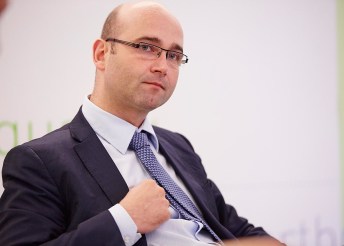 For the tenth year in a row, Biotronik is hosting the “Expert Meeting Berlin” (EMB). Led by Christopher Piorkowski, Heart Center Dresden, Germany, the platform allows cardiologists and electrophysiologists to discuss challenges and opportunities to individualise cardiac rhythm management for patients with atrial fibrillation and heart failure.
For the tenth year in a row, Biotronik is hosting the “Expert Meeting Berlin” (EMB). Led by Christopher Piorkowski, Heart Center Dresden, Germany, the platform allows cardiologists and electrophysiologists to discuss challenges and opportunities to individualise cardiac rhythm management for patients with atrial fibrillation and heart failure.

“A lot goes in to treatment decisions, including managing heart rate and rhythm, assessing risks from medication and comorbidities, and genetic factors. Not all patients benefit equally from a single treatment approach,” explains Piorkowski. “It has been a long time since atrial fibrillation and heart failure were seen as only affecting heart rhythm. Rather, they have complex symptoms and pose an increased risk of early mortality, stroke or repeat hospitalisation.”
Numerous diagnostic and therapy options can treat atrial fibrillation and heart failure. “Giving patients the best treatment requires the various disciplines to work together and tailor their approach to individual patients,” notes Dietmar Bänsch, Clinic for Rhythmology and Electrophysiology in Güstrow, Germany.
The European Society of Cardiology’s 2016 update of its guidelines on atrial fibrillation is an indicator of the move towards interdisciplinary care. For the first time, the guidelines recommend that atrial fibrillation heart teams include specialists from different fields, such as cardiac surgeons and neurologists.

Reliable diagnostics and monitoring that optimally detect pathophysiological heart characteristics and prognostic factors are a high priority in a tailored, interdisciplinary therapy strategy.
“There is great potential in new imaging techniques, such as magnetic resonance imaging (MRI) and 3D-mapping systems, that combine anatomical and electrical information,” adds Bänsch. “Together with modern catheters, they make it possible for us to completely restore the heart’s anatomical structures and electrical activity, and to assess these factors individually. In turn, we can better understand complex interactions and perhaps even identify the cause of a rhythm disturbance.”
Biotronik’s meeting will take place from 27-28 January.












